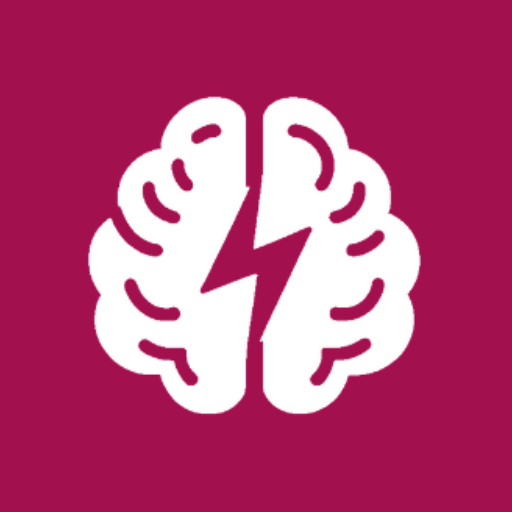"Correlation isn't Causation" - A causal explainer-AI causal argument analysis
AI-powered causal analysis for your research
Is this paper causal?
Related Tools
Load More
Code Explainer
I explain code in detail.

The Causal Mindset
Think Causaly, Act Wisely: share a facts/statement/graph with me and I'll disect it.

Econometrics and Causal Inference Expert
Expert in Econometrics, Causal Inference, and Economics
Summarise & Explain
Summarise the text and make a list of the most important recommendations or advice. Gives examples where possible.

Explain Like
Answers tailored for your profile, be it your profession, personal traits, or interests.

Thing Explainer
A Guide to the World for Curious Kids
20.0 / 5 (200 votes)
Introduction to 'Correlation isn't Causation' - A Causal Explainer
Welcome to 'Correlation isn't Causation' - A Causal Explainer, a tool designed to help users understand the difference between correlation and causation in academic and real-world contexts. This tool aims to demystify the concepts of correlation and causation by providing clear explanations, analogies, and examples. Imagine reading a paper that claims eating ice cream causes drowning because both happen more frequently in the summer. This is a classic example where correlation (both ice cream sales and drowning incidents increase in summer) does not imply causation (eating ice cream causes drowning). Our tool helps users identify such pitfalls, understand the methods used to establish causation, and distinguish between mere associations and true causal relationships.

Main Functions of 'Correlation isn't Causation' - A Causal Explainer
Analyzing Academic Papers
Example
A user provides the title of a study suggesting a link between screen time and obesity. The tool examines the study's methodology to determine if it uses proper causal inference techniques like randomized controlled trials (RCTs) or instrumental variables.
Scenario
A researcher wants to verify if the claims made in a study about screen time causing obesity are valid. The tool analyzes the study to see if the methodology supports a causal claim or merely a correlation.
Providing Explanations and Analogies
Example
Explaining why ice cream sales and drowning incidents are correlated due to a third factor (hot weather) rather than a direct causal relationship.
Scenario
A student is confused about why a spike in ice cream sales coincides with an increase in drowning incidents. The tool uses simple analogies to clarify that both are influenced by an external factor (temperature), not one causing the other.
Educational Guidance
Example
Guiding users through concepts like confounding variables, reverse causation, and how to interpret statistical results.
Scenario
A graduate student writing a thesis on public health seeks guidance on differentiating between causation and correlation in their data analysis. The tool provides educational resources and step-by-step explanations to help them understand and apply these concepts.
Ideal Users of 'Correlation isn't Causation' - A Causal Explainer
Students and Academics
Students and researchers in fields like social sciences, public health, economics, and psychology who need to understand the nuances of causation versus correlation in their studies and research papers. These users benefit from clear explanations and tools to evaluate the validity of causal claims in their work.
General Public and Policy Makers
Individuals and policy makers who encounter statistical claims in news reports, policy proposals, and everyday information. They benefit from the tool's ability to clarify whether such claims are supported by causal evidence or if they merely reflect correlations. This understanding helps them make informed decisions based on sound evidence.

How to Use 'Correlation isn't Causation' - A Causal Explainer
Step 1
Visit aichatonline.org for a free trial without login, also no need for ChatGPT Plus.
Step 2
Have the name of the paper or the actual document ready for analysis.
Step 3
Enter the name of the paper or upload the document for examination.
Step 4
Read through the analysis provided, which will detail if the methods used in the paper allow for causal claims.
Step 5
Use the feedback and suggestions given to understand the causal arguments and apply necessary adjustments or considerations to your research or review.
Try other advanced and practical GPTs
英和翻訳H
AI-powered precision for scientific translations

Novel Character generator | Personaje de novela
AI-powered character creation for novelists

Swift Mentor
AI-powered assistant for iOS development.

Medieval Historian
AI-powered insights into medieval history

Investor Copilot by Aiolux
AI-powered financial insights and analysis

Sharp Sports Bets Picks & Betting Tips
AI-powered betting insights for smarter picks

空き家の問題解決
AI-powered solutions for vacant properties.
Positive News Messenger
Discover positive news powered by AI

Thumbnails
AI-powered custom thumbnails in seconds

Fiction and Nonfiction Book Writing
AI-Powered Writing, Your Story Perfected

Presentation Generator
AI-Powered Presentation Creation Tool

ChromeExtensionWizard
AI-powered Chrome Extensions made easy.

- Academic Research
- Paper Analysis
- Research Methods
- Statistical Review
- Causal Claims
FAQs about 'Correlation isn't Causation' - A Causal Explainer
What is the main function of 'Correlation isn't Causation' - A Causal Explainer?
Its main function is to analyze academic arguments to determine whether they establish causation or merely correlation.
How does 'Correlation isn't Causation' help in academic writing?
It helps by providing a detailed analysis of the methods used in a paper, ensuring that causal claims are valid and backed by proper statistical methods.
Can this tool help in understanding complex statistical concepts?
Yes, the tool explains complex statistical concepts in a simplified, often humorous manner, making them accessible to those without a deep understanding of statistics.
Is it necessary to have a background in statistics to use this tool?
No, the tool is designed to be user-friendly and helpful even for those with little to no background in statistics.
What should I do if the tool identifies that my paper only shows correlation?
If your paper only shows correlation, you can use the suggestions provided by the tool to improve your methodology and better establish causal relationships.